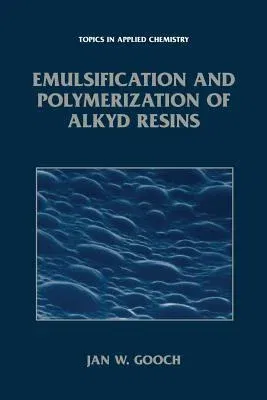Emulsification of vegetable oil-based resins was a daunting task when
the author began his research, but the subsequent technology spawned a
generation of stable emulsions for waterborne coatings based on
vegetable oil-based alkyd resins, oils and fatty acids. Autoxidative
polymerization of emulsified alkyd resins is an innovative and original
contribution to emulsion technology, because conventional
emulsion-polymerization is not applicable to alkyd resins. Emulsified
alkyd particles are polymerized while dispersed in stable aqueous
media--an original and patented innovation. Smooth and fa- drying alkyd
coatings are generated from non-polymerized emulsions and air-dried with
conventional metal driers, and have met with marketing success. The
pre-polymerization innovation for emulsified alkyd particles provides
very fast air-drying coatings that have potential markets for interior
architectural latex coatings and waterborne pressure-sensitive adhesives
and inks. The author demonstrates his knowledge of chemical reaction
kinetics by employing a combination of oxygen concentration, internal
reactor pressure and other reactor variables to finely control the rate
and degree of autoxidative polymerization. He meticulously calculates
surfactant chemistry by measuring hydrophile-lipophile balance values,
and solubility parameters to emulsify characterized resins. The
relationship between hydrophi- lipophile values and solubility
parameters is shown in explicit equations. Homogenization equipment used
during the course of this research to generate emulsions is shown in
detailed drawings together with concise particle size and distribution
data. The author reports research spawned internationally by his
research in the fields of alkyd-acrylic hybrids, polyester and
oil-modified urethane resins.


